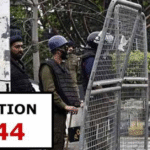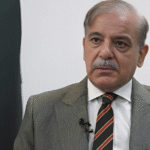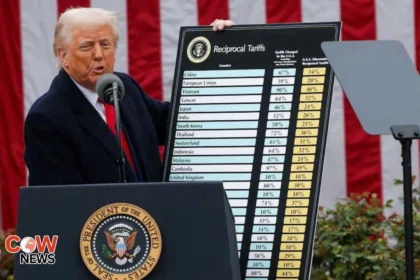ISLAMABAD — In a significant move to alleviate financial pressures, the government of Pakistan has decided against securing a loan from a commercial bank at an interest rate of 11%. This decision, reported by ARY News, comes at a time when the country is grappling with severe economic challenges, including soaring inflation and a depreciating currency. Prime Minister Shehbaz Sharif has reportedly instructed the finance ministry to avoid taking on expensive loans, seeking instead to explore alternative funding sources that would not burden the national exchequer further.
The Current Economic Landscape
Pakistan’s economy has been under immense strain for several years, and the current fiscal environment poses a considerable challenge for policymakers. Rising inflation, which has recently crossed double-digit figures, has eroded purchasing power and increased the cost of living for ordinary citizens. The currency has faced significant depreciation, making imports more expensive and further exacerbating inflationary pressures.
Amid this backdrop, the government’s reliance on external borrowing has become a contentious issue. As of late, Pakistan has been in discussions with commercial banks for loans at rates that some experts argue are unsustainable given the current economic context. The proposed 11% interest rate was viewed as particularly burdensome, prompting the government to rethink its borrowing strategy.
Strategic Shift in Borrowing Policy
The finance ministry’s decision to back out of the commercial loan agreement signifies a strategic shift in the government’s borrowing policy. Prime Minister Sharif’s directive to the finance minister reflects a broader commitment to fiscal prudence and responsibility. The government aims to avoid adding to its already considerable debt burden, which could have long-term ramifications for economic stability.
According to sources, the government had initially reached an agreement with commercial banks for the loan. However, the decision to withdraw highlights a cautious approach to debt management. Financial analysts have pointed out that taking on high-interest loans could jeopardize Pakistan’s fiscal health and hinder efforts to stabilize the economy.
Exploring Alternative Financing Options
In light of the decision to reject the commercial loan, Pakistan is now turning to alternative financing sources. One of the primary avenues being explored is securing funds from the International Trade Finance Corporation (ITFC) and the Islamic Development Bank (IDB). Reports suggest that Pakistan could potentially secure up to $700 million from these institutions, which typically offer more favorable lending terms compared to commercial banks.
These funding sources are particularly appealing as they are often designed to support developing economies. The terms associated with loans from the ITFC and IDB tend to be less burdensome, allowing for greater flexibility in repayment schedules. This aligns with the government’s goal to minimize the financial strain on its budget.
The Role of the IMF
The International Monetary Fund (IMF) continues to play a crucial role in Pakistan’s economic landscape. The country has availed itself of numerous IMF programs since becoming a member in 1950, with the most recent being a 37-month Extended Fund Facility (EFF) approved in September 2024. Under this program, Pakistan is expected to receive approximately $1 billion during the current fiscal year, with further disbursements anticipated in subsequent years.
The IMF’s involvement is often seen as a double-edged sword. While it provides critical financial support, the conditions attached to IMF loans usually require significant structural reforms. These reforms can be politically sensitive and may face opposition from various stakeholders within the country. The upcoming first economic review under the EFF, scheduled for March, will assess Pakistan’s adherence to the IMF’s requirements and determine future disbursements.
Potential Complications with Commercial Banks
Pakistan’s decision to back out of the commercial loan agreement may lead to complications in its future dealings with these financial institutions. By not proceeding with a loan that was already negotiated, the government risks damaging its credibility with commercial banks, which could be hesitant to engage in future agreements.
Financial experts have expressed concern that this decision could create a perception of unreliability in Pakistan’s borrowing practices. In a global financial environment where trust is paramount, maintaining good relationships with lenders is essential for securing necessary funding. The government will need to navigate these relationships carefully, ensuring that it communicates its strategy transparently to avoid potential fallout.
Investor Confidence and Market Reactions
The financial markets are closely monitoring Pakistan’s economic decisions, and investor confidence is a key factor in determining the country’s ability to attract foreign investment. The rejection of a high-interest loan might be viewed positively by some investors, as it reflects a commitment to fiscal discipline. However, there is also a risk that potential investors may interpret the decision as a sign of deeper financial distress.
To bolster investor confidence, the government must convey a clear and coherent economic strategy. This includes outlining how it plans to address the current challenges and achieve sustainable growth. Effective communication will be crucial in ensuring that investors remain engaged and optimistic about the potential for recovery.
Political Ramifications
The decision to avoid a costly commercial loan could have significant political implications as well. The current administration has faced criticism regarding its handling of the economy, and this latest move may be scrutinized by opposition parties. Political analysts suggest that the government must be prepared to defend its fiscal policies and articulate a comprehensive plan to navigate the economic challenges ahead.
The broader political landscape also plays a role in shaping economic policy. With the potential for political opposition to capitalize on economic hardships, the government needs to demonstrate its commitment to addressing the concerns of citizens while managing the economy effectively. Public trust is essential for political stability, and the administration must ensure that its decisions resonate with the electorate.
Future Economic Outlook
Looking ahead, the path to economic recovery for Pakistan is fraught with challenges. While the decision to avoid high-interest loans may provide some immediate relief, long-term solutions are necessary to address the underlying issues plaguing the economy. Structural reforms aimed at improving governance, enhancing tax collection, and reducing fiscal deficits will be essential in creating a more resilient economic framework.
Furthermore, fostering a favorable business environment to attract foreign investment can significantly contribute to sustainable economic growth. The government must work collaboratively with the private sector to identify opportunities for investment and innovation, particularly in sectors that have the potential for growth.
The Importance of Structural Reforms
To achieve sustainable economic recovery, Pakistan must prioritize structural reforms. This includes addressing inefficiencies in public spending, improving tax collection mechanisms, and enhancing the overall business climate. These reforms are crucial for creating a more conducive environment for investment and economic growth.
Additionally, efforts to diversify the economy can help reduce dependence on specific sectors, such as agriculture or textiles. By promoting innovation and entrepreneurship, Pakistan can foster a more dynamic economic landscape that is better equipped to withstand external shocks.
The Global Economic Context
Pakistan’s economic challenges are not isolated; they are part of a broader global economic context marked by uncertainty. Geopolitical tensions, fluctuating commodity prices, and the impact of global inflation all influence the economic landscape. As a result, Pakistan must remain vigilant and adaptable, developing strategies that can withstand external pressures.
Engaging with international partners and fostering diplomatic relationships will be crucial in navigating these challenges. Collaborative efforts can lead to increased trade opportunities and access to vital resources, further supporting Pakistan’s economic recovery.
The Path Forward
In summary, Pakistan’s decision to avoid a costly loan from a commercial bank is a significant step toward achieving fiscal prudence and long-term economic stability. The government’s focus on seeking alternative funding sources, such as the ITFC and IDB, reflects a commitment to responsible borrowing practices.
As the country faces its economic challenges, the emphasis must remain on implementing structural reforms and fostering an environment conducive to investment. By navigating its fiscal landscape strategically and transparently, Pakistan can work towards a more sustainable economic future.
#PakistanEconomy #LoanDecision #IMF #EconomicPolicy #FinancialStability #ShehbazSharif #EconomicReform #IslamicDevelopmentBank #InternationalTradeFinanceCorporation #FiscalDiscipline







